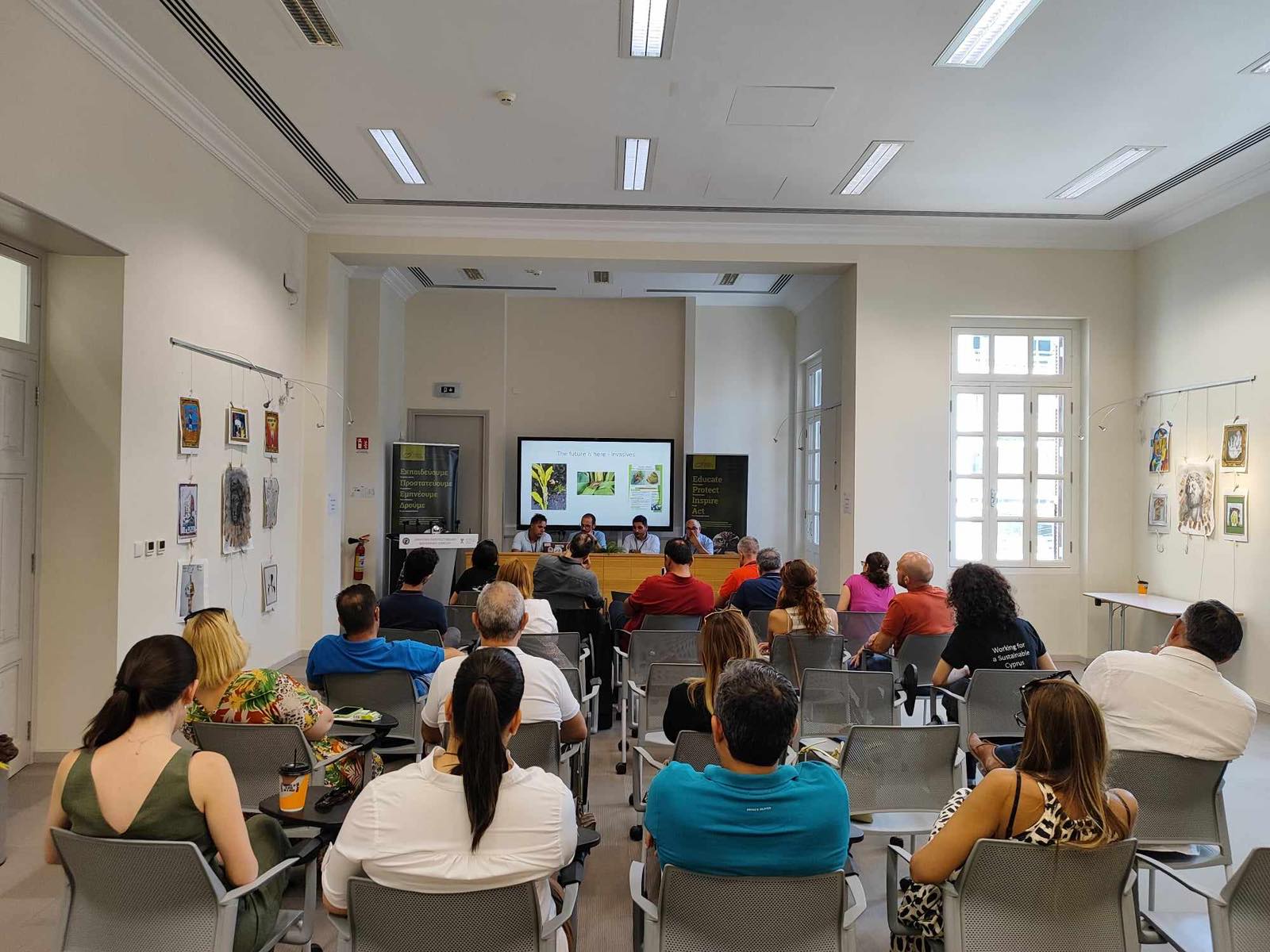We successfully hosted a workshop on “Climate Change and Agriculture,” bringing together experts from various fields, including agronomists, representatives of farm unions, university professors, and government technocrats to discuss the impact of climate change on agriculture and the different means through which the latter can best adapt to the new climatic conditions.
The impacts of climate change are omnipresent, from prolonged periods of heat and drought, floods and hail, to dust and desertification. These have severely affected the agricultural sector and are expected to affect it even more in the coming years. Our workshop was, therefore, held under this context with the aim being to discuss and analyse the problems that agriculture faces because of climate change, as well as practical solutions.
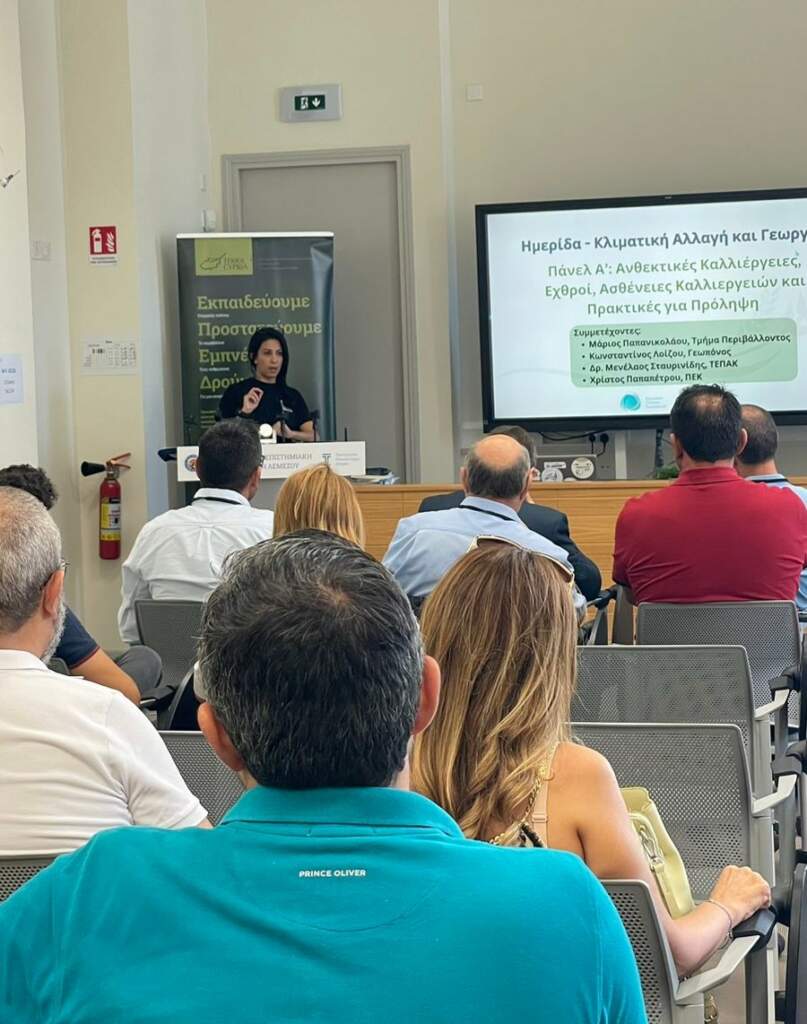
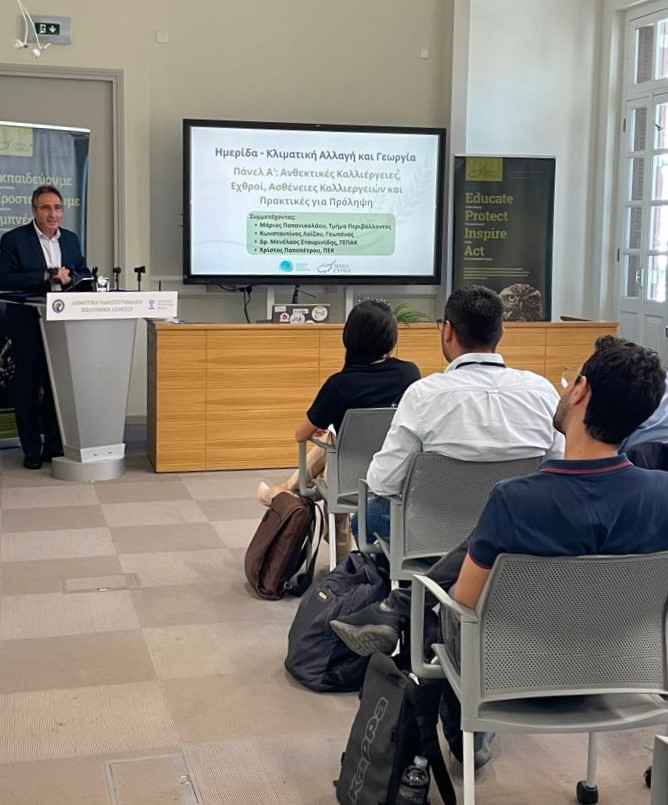
During the seminar, it became clear that climate change is but another challenge added to the long list of difficulties farmers are already confronted with, such as the high cost of electricity and water and the unfair competition they are exposed to with imported agricultural products.
Besides the practical difficulties arising from extreme weather conditions, such as water scarcity, prolonged heat waves and hailstorms, which damage plants both during flowering and fruiting, the risk of spreading pests, which thrive in high temperatures and can be devastating for Cyprus’ crops, was also highlighted. For that, disease management practices were analysed, including targeted control using natural predators.
Desertification, soil health, and practices to maintain a healthy soil profile, were also an important part of the discussion. Suggestions included techniques for shielding the soil, conserving moisture and organic matter, thus protecting it from erosion, and ensuring proper permeability and absorption. As emphasized, only a healthy soil can support a healthy crop.
During the seminar, other practical methods for water conservation were showcased, including efficient irrigation systems, soil covering to reduce evaporation and protect against erosion, and other innovative approaches.
It also noteworthy that attendees stressed and agreed on the need to form a stakeholder group to address the sector’s challenges and propose practical solutions. Moreover, the Department of Meteorology, and specifically its Director, Dr Filippos Tymvios, pledged to enhance its agrometeorological bulletin, providing farmers and agronomists with more effective weather forecasts.
The workshop concluded with the promise of continued cooperation between stakeholders and interested parties and the adoption of practical solutions that will shield the agricultural sector against the challenges of climate change. The need for immediate action is urgent as climate change continuously affects Cyprus’ crops, land and economy.
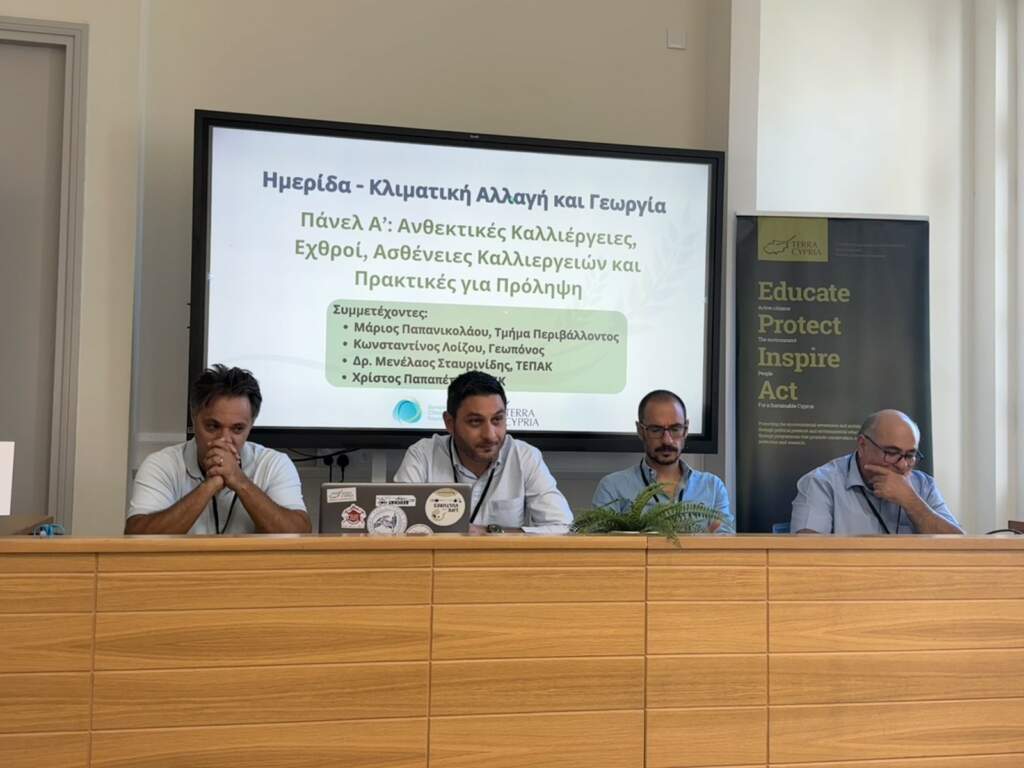
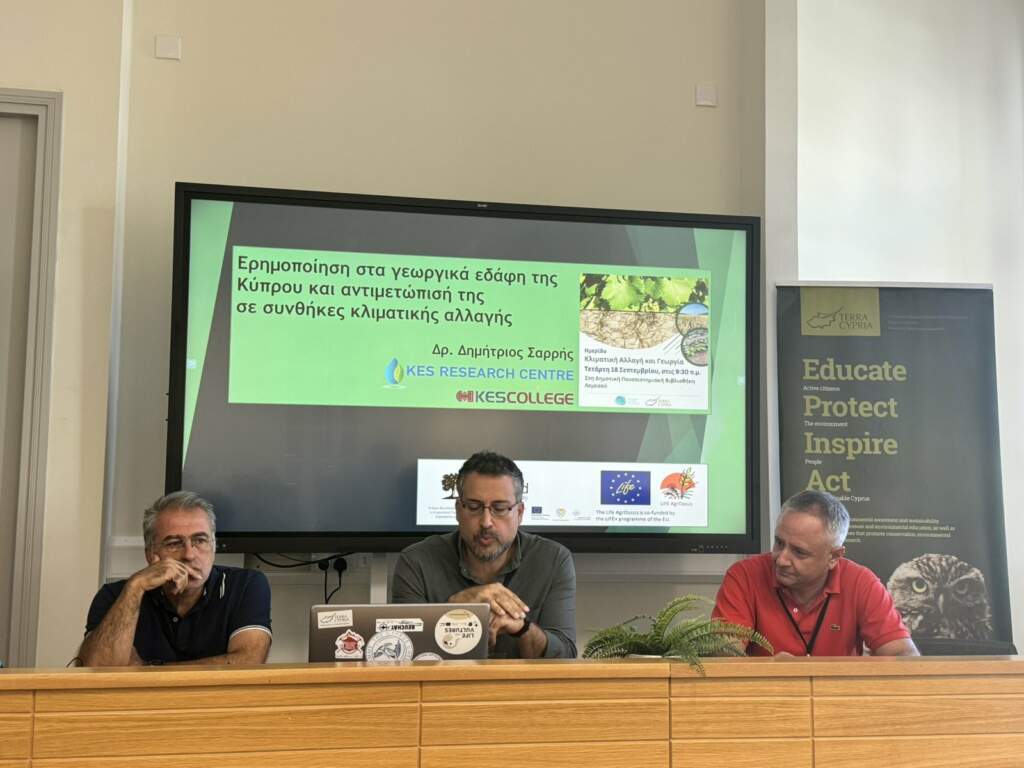
We would like to thank our speakers, Mr. Marios Papanikolaou, Environment Officer, at the Climate Action Unit, Department of Environment; Mr. Konstantinos Loizou, agronomist and producer; Dr. Menelaos Stavrinidis, entomologist and professor of the Department of Agricultural Sciences, Biotechnology and Food Science at the Technological University of Cyprus (CUT); Mr. Christos Papapetrou, representing the Pancyprian Farmers Union, Dr. Dimitris Sarris, Research Director at the KES Research Centre, Dr. Dimitris Tsalta, Professor of the Department of Agricultural Sciences, Biotechnology and Food Science at CUT, Dr. Panagiotis Dalias, Agricultural Research Officer at the Cyprus Agricultural Research Institute, and all those who attended, for their valuable contribution.




